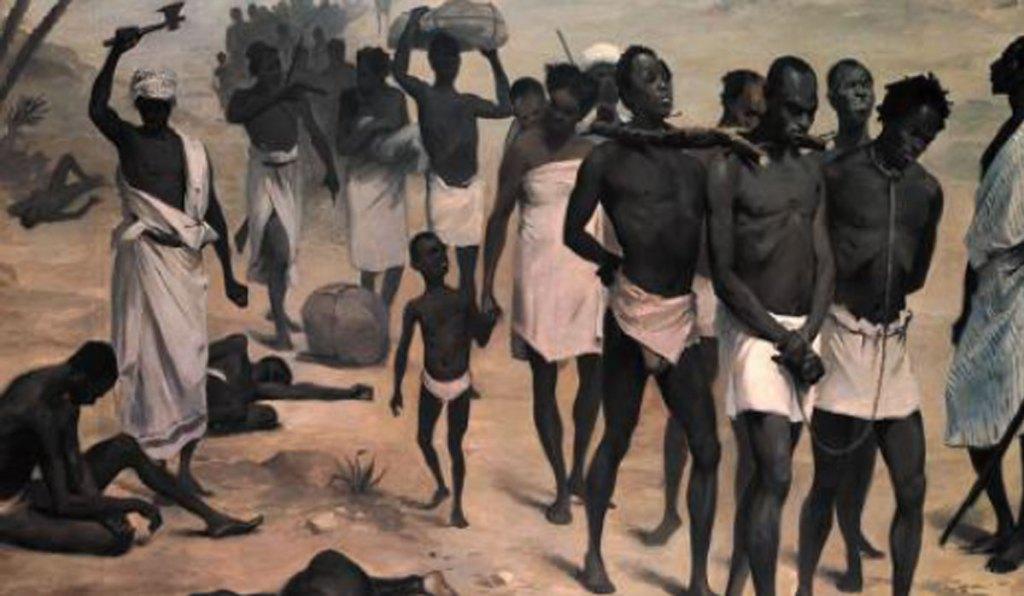Africa-Press – Mauritius. The duty of memory, ritualized by the commemorations, should encourage us to question what the slavery system was and its relevance in the history of the constitution of capitalism in Mauritius.
We too often have this tendency to remain in the incantation of historical colonial pains without having the courage to claim the truth in relation to the causes and consequences of colonialism in our present.
For example, how to question current exclusion without tracing its source to the racial division that colonialism instituted? Or again, how can we understand the current resistance to power without tracing a genealogy of resistance ranging from the marooning to the workers’ struggles, passing through the struggle of the engaged workers?
The fundamental principle of the slave system was based on the very invention of the biological notion of “race”, which provided a basis for racial division.
And the racial divide was essential to establish the dominant/dominated relationship based on color difference – what the Black Code codified as the “color barrier”.
The color barrier was at the very foundation of the justification of the commodification of man by man, which was the principle of slavery and mercantilist liberalism.
The slave system gave the Dutch and French colonial administrations the labor force that allowed them to slowly establish a sugar industry in Mauritius.
When it was abolished, the indenture system came to replace it after an intense battle between the British administration and the plantocracy lobby, represented by Adrien d’Épinay.
But at what cost ? At the cost of compensation paid by the British to slave owners so that freed slaves could benefit from it. . . It is essential to remember that no freed slave received any compensation at the time.
There is a whole set of taboos to break, a whole set of truths to face, a whole set of questions to ask ourselves – in a country that too often confuses the perpetrators with the victims – if we really want to restore the possibility even of justice and if we want true equality as citizens, especially in access to the economy.
Will we finally one day have the courage of this truth? Appointment of Premod Neerunjun – A breath of fresh air The appointment of a new Cabinet Secretary and Head of the Civil Service always represents an important event in the life of public administration.
The Civil Service has a new boss, which may lead to certain changes in the management style of the PMO and other institutions under its supervision. Above all, a new Cabinet Secretary can bring about a change in the personal and professional relationship with the Prime Minister.
There are also interesting precedents in the United Kingdom, where Cabinet Secretaries were often men with strong personalities and strong character, who did not hesitate to oppose a Prime Minister if necessary.
Something that the sitcom “Yes, Prime Minister” also stages perfectly well, having fun with the relationship between Prime Minister Jim Hacker and Sir Humphrey Apple by, his Cabinet Secretary.
As Margaret Thatcher pointed out, this satire contains a great deal of truth, and famous precedents have historically marked the British administration. We are thinking here, for example, of the strained relationship between Tony Blair and the then Cabinet Secretary, Sir Robin Butler.
The latter had regularly opposed Tony Blair when he tried to encroach on the powers reserved to the Cabinet Secretary, and in particular when Tony Blair had tried to grant his Special Advisors the power to give orders to senior officials – something unthinkable in the great British tradition of the separation of powers.
The question is therefore posed to Premod Neerunjun: will he be a Cabinet Secretary à la Sir Humphrey Apple by or someone who will simply say “Yes, Prime Minister”?
Climate Change – The Way Forward It is undeniable today that the climate is changing rapidly in Mauritius, and this is due to global warming. Let us not forget that Mauritius is one of the countries most exposed to the risks and destruction linked to global warming.
We must add to this the fact that despite the ‘flash floods’, rainfall has actually been falling for several years, which means that we are exposed to a progressive aridification of our soils.
Quite simply, the problem of flash floods and floods is intimately linked to that of the collection, treatment and distribution of water. There is also the big problem of the concretization of the territory, a phenomenon which is not decelerating.
It is therefore imperative to develop a holistic approach to the problem of water management. We must just as easily solve the problem of floods, which plunges many Mauritians into a difficult situation, as find other strategies for capturing, treating and distributing water.
It is a question of rethinking land use planning, urbanization plans as well as a clearly defined plan for the construction of water collection and distribution systems.
Therefore, it is essential that the Ministry of National Infrastructure, the CWA and all the institutions concerned can work together to optimize the capture, reduce losses and leaks, and ensure that the drain system works properly. in order to avoid any disaster in the future.
For More News And Analysis About Mauritius Follow Africa-Press







